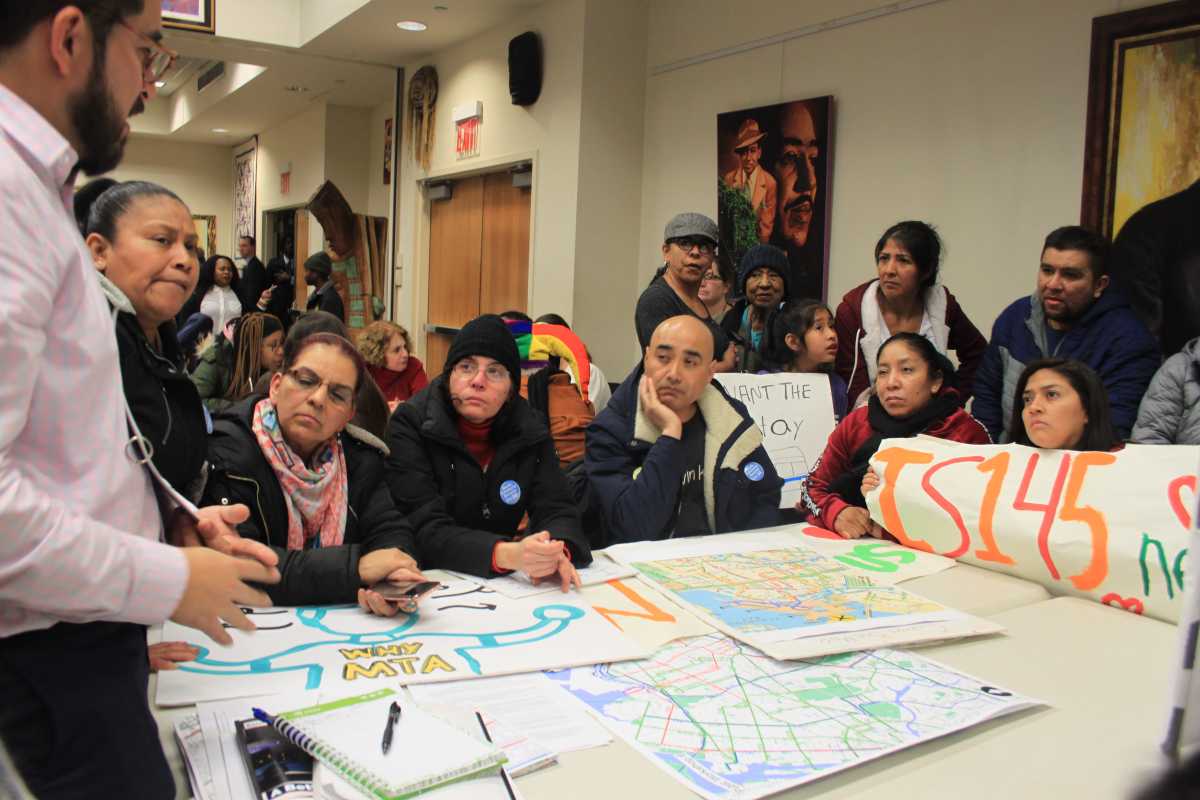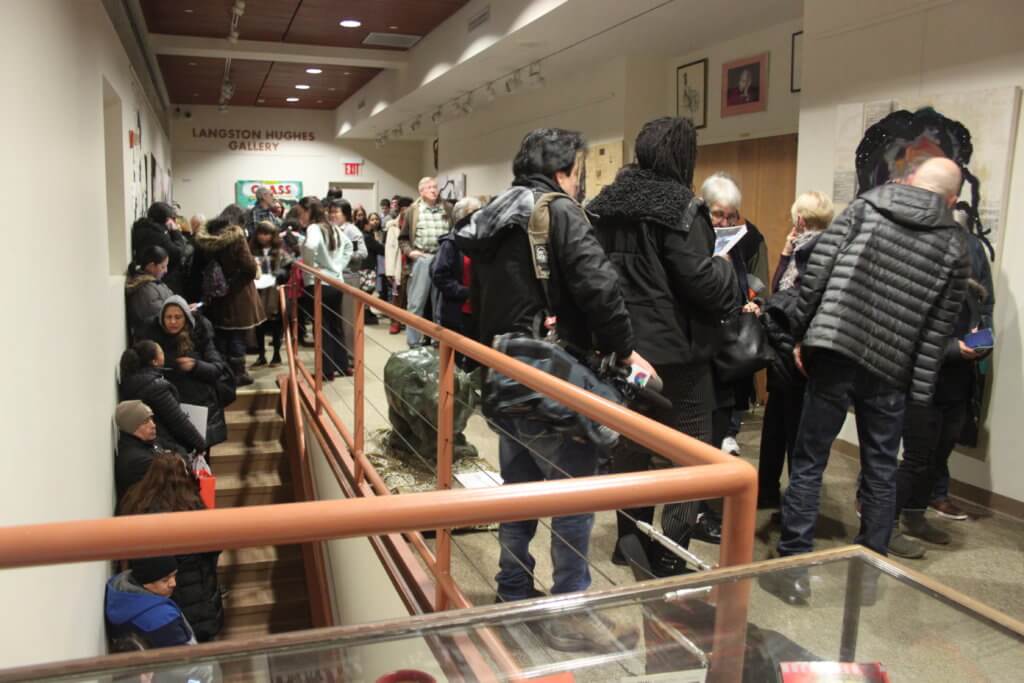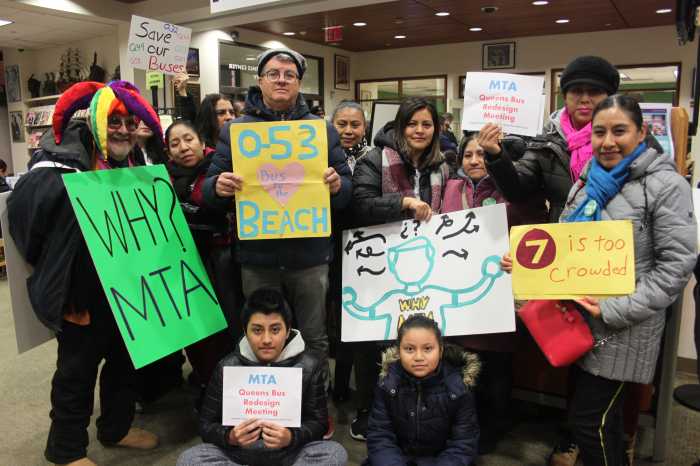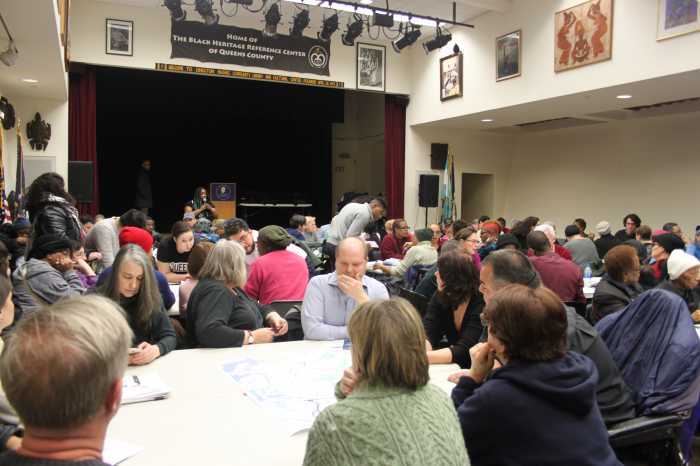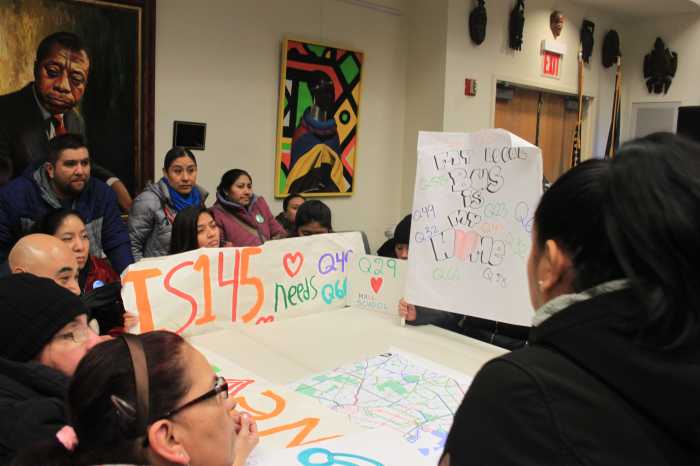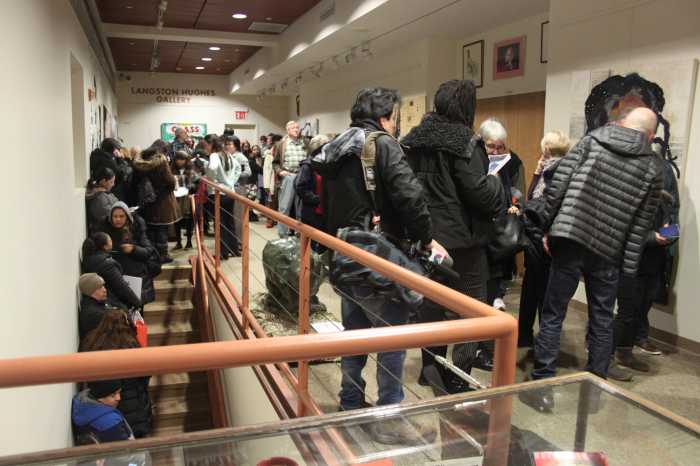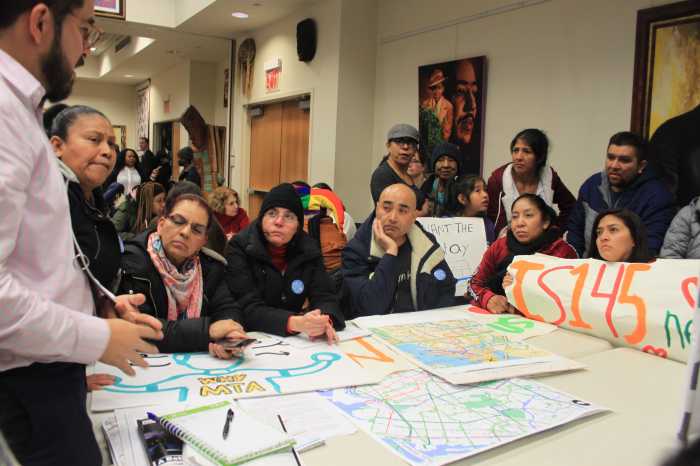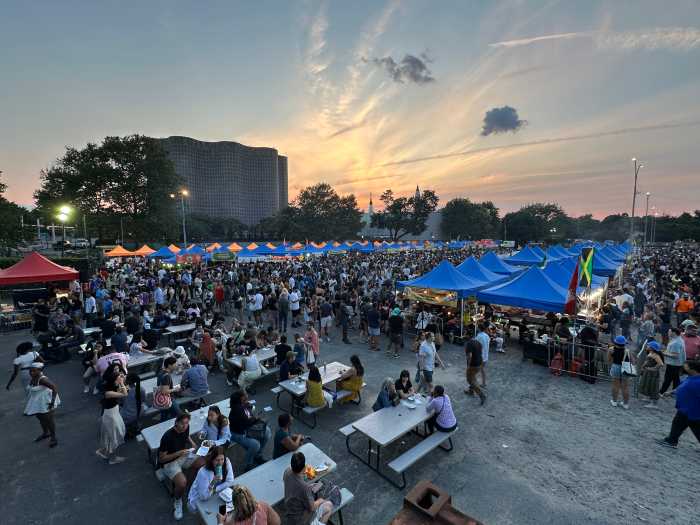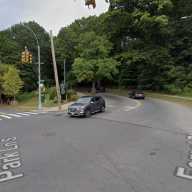More than 300 bus riders crammed into the Queens Public Library at Langston Hughes on Thursday, Jan. 30, for the MTA’s bus network redesign workshop in Corona.
Residents of the northwestern neighborhood took the chance to give MTA officials’ their feedback on the proposed plan, including a group of concerned parents who protested the redesign as a whole. They argued that the current plan will cut service of vital lines where their kids take buses to and from school.
“We are here because the MTA wants to redesign the buses and we do not want the redesign,” Martha Sanchez, a Corona community activist and parent, said in Spanish. “I want better service. More buses and improved service, but I do not want the redesign.”
The group held signs that read “I.S. 145 Joseph Pulitzer School needs Q49 and Q66,” “my local bus is my home,” and “save our buses.” Sanchez explained that her children rely on buses like the Q23, Q66 and Q49 in order to get to and from school safely.
A Community Education Council (CEC) 24 spokesperson pointed out that the Q29 (which currently connects Jackson Heights, Elmhurst, Rego Park, Middle Village and Glendale) will be eliminated in the current plan, and will affect several schools, including P.S. 89Q, P.S./I.S. 49Q, Newtown High School, and Cathedral Preparatory School.
According to the MTA’s current bus redesign route profiles, the Q23, Q29 and Q49 buses will be eliminated but similar stops and services will shift to the QT10, QT11, QT58, QT74, QT82, with headways of eight to 12 minutes.
But parents and CEC24 maintain that eliminating buses isn’t acceptable.
In response to the MTA’s message that fewer lines does not mean less service, Sanchez said that, “People may think that, but the people who are really going to be hurt are the people who live here.”
The Jan. 30 workshop was meant to take place in the library’s auditorium from 6 to 8 p.m., but given the amount of people who showed up, it was extended another half an hour. In order to streamline the process, the MTA had 30-minute shifts between groups of about 10 people per table (there were 12 tables). Sanchez and her group of more than 20 Spanish-speaking parents and children were among the last groups of the night.
They all had to gather around one table with one Spanish-speaking MTA facilitator. Tim Minton, the MTA’s communication director, attended the workshop and explained that there were three Spanish translators that night, but two had to leave when the workshop was meant to end (which was originally at 8 p.m.).
While the group expressed concerns about bus routes getting eliminated or service cutbacks, one person was particularly louder about their frustrations and ended up speaking over the MTA facilitator at the table to the point where the facilitator had to take a step back and regroup. But the facilitator went back to finish talking to the group and took down notes with their issues.
After their talk, Sanchez said that there should’ve been more Spanish speakers and more patience because parents are “very upset.” Another parent added that they have been spreading the word about the redesign themselves, because most people aren’t even aware of the changes.
Councilman Francisco Moya attended the workshop and told QNS that he encourages his constituents to tell the MTA what they want so the final plan reflects their needs.
He said that the current redesign plan is “flawed,” and doesn’t take into consideration seniors, people with disabilities, and the neighborhood’s transit deserts. He added that it’s communities of color, like Corona, who are usually affected the most by cuts and changes.
“To eliminate [buses] and say that it’s to create more ridership is just a farce,” he said. “Losing MTA President [Andy Byford] recently makes me worrisome of where we are headed with this … But I think what you’re seeing here — and it should be clear to the MTA by the line that is literally out the door for every one of these events — is that these bus lines are the lifeblood of this community.”
The Corona native added that while the workshops “are a good first step,” they “need to do more.”
“I think they’ll agree that it was a very poor rollout in how they did this without even consultation, or talking to the elected officials in the community about what was going to happen,” Moya said.
Minton, on the other hand, said that the current outreach process is very democratic and the transit agency will continue to consider feedback even after the final proposed Queens bus network redesign plan is out — which can be expected sometime in the fall, and won’t be implemented until 2021.
The MTA announced on Friday more than 20 additional dates for workshops and meetings in Queens, after receiving the most amount of feedback for their bus network redesign plans to date. Staten Island was the first borough to undergo the MTA’s bus redesign, followed by the Bronx. They announced the new meetings around the same time that a bus rally for a better and more inclusive plan led by many Queens lawmakers at Borough Hall.

